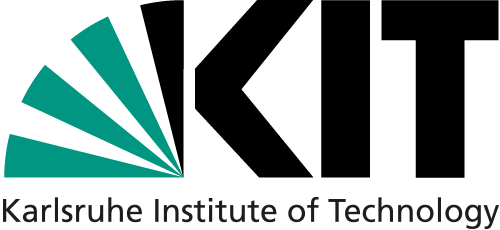
Karlsruhe Institute of Technology (KIT) – The Research University in the Helmholtz Association creates and imparts knowledge for the society and the environment. It is our goal to make significant contributions to mastering the global challenges of mankind in the fields of energy, mobility, and information. For this, more than 9.000 employees of KIT cooperate in a broad range of disciplines in research, academic education, and innovation.
The Laboratory for Applications of Synchrotron Radiation (LAS) is looking as soon as possible and limited to 3 years for a
Research Associate (f/m/d)
Deep Learning Segmentation in Biomedical Imaging: An Unsupervised and Self-Supervised Approach
Job description
We are seeking a highly motivated person (f/m/d) to join our applied deep learning team and contribute to the development of state-of-the-art segmentation methods.
The successful candidate (f/m/d) will have the opportunity to work on cutting-edge research in the field of Deep learning (DL) applied to X-ray Computed Tomography (CT) data.
The goal of the project is to extend existing software and supervised semantic segmentation with unsupervised and weakly supervised techniques. Semantic image segmentation is a labor-intensive and time-consuming task that requires manual annotation by experts. Unsupervised learning involves learning patterns and features in data without explicit supervision or labeled data. Self-supervised learning (SSL) involves training a model to predict certain properties of the data. In the context of semantic image segmentation, SSL techniques can be used to train a model to predict different types of transformations, such as rotation, colorization, or jigsaw puzzles. The model can then use this knowledge to segment the images, without requiring pixel-level annotations. By leveraging these techniques, the efficiency of semantic image segmentation can be significantly improved, enabling faster and more cost-effective analysis of large-scale image datasets.
Your tasks within the project:
- Review state-of-the-art approaches for unsupervised, weakly supervised and self-supervised learning
- Implement the selected approaches
- Integrate the devised models into the segmentation software and workflows
Personal qualification
We are looking for a candidate with a strong scientific background and a passion for using AI technology to advance the biomedical field. If you have a PhD or Master's degree in Computer Science, Computer Vision, Machine Learning, or a related field; have a strong understanding of deep learning principles; interested to contribute to various applied projects in the field of biomedical imaging – we would like to hear from you.
They shall have:
- Master in computer science, mathematics or engineering
- In-depth understanding of the Deep Learning principles
- Good programming skills: Python, Git, OOP, and DL framework of choice are a must
- Experience with image processing and computer vision
- Track record of DL related publications is a plus
- Confidence in English
We offer you an attractive and modern workplace with access to the excellent equipment of the KIT, a varied work, a wide range of training opportunities, flexible working time models, an allowance for the job ticket BW and a casino/cafeteria.
We prefer to balance the number of employees (f/m/d). Therefore we kindly ask female applicants to apply for this job.
Recognized severely disabled persons will be preferred if they are equally qualified.
Please apply online untill June 4, 2023 using the vacancy number 2123/2023 and the reference number 6 to Ms Raquel Carrasco Sánchez, Karlsruhe Institute of Technology (KIT), Kaiserstr. 12, 76131 Karlsruhe, Germany. Please enclose a one-page letter of motivation and relevant certificates with your application. For further information, please contact Dr. Alexey Ershov, email: alexey.ershov2@kit.edu.
Your personal data will be processed by KIT in accordance with this privacy policy.
You can find further information on the internet: www.kit.edu
KIT – The Research University in the Helmholtz Association